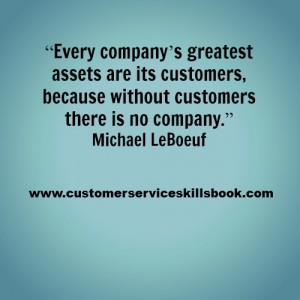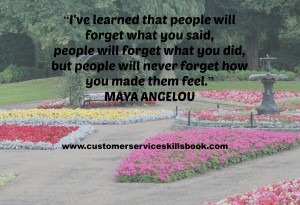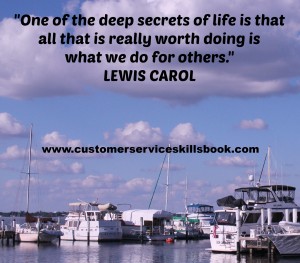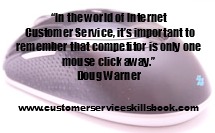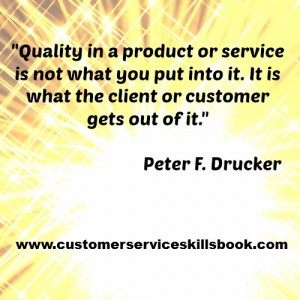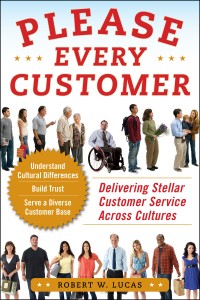Motivational Customer Service Quote – Roger Staubach
Customer service jobs can be stressful. Sometimes having to satisfy the needs, wants and expectations of dozens of diverse customers in a day can start to wear on even seasoned customer service representatives and other organizational employees.
The key to success in the service industry is to keep a positive attitude, strive to listen effectively in order to identify your customers’ issue or situation, and then try to provide an effective solution. This 110 percent effort can be a challenge, but it pays off in the end when you can facilitate customer and brand loyalty.
Keep a quote by famed Dallas Cowboys football quarterback Roger Staubach, who equated success to a highway.
More Famous Quotes from Roger Staubach…
- Confidence doesn’t come out of nowhere. It’s a result of something… hours and days and weeks and years of constant work and dedication.
- Winning isn’t getting ahead of others. It’s getting ahead of yourself.
- Spectacular achievements come from unspectacular preparation.
- Nothing good comes in life or athletics unless a lot of hard work has preceded the effort. Only temporary success is achieved by taking short cuts.
For ideas and strategies on how to provide excellent customer service to your customers, get copies of Customer Service Skills for Success, Please Every Customer: Delivering Stellar Customer Service Across Cultures and How to Be a Great Call Center Representative.
About Robert C. Lucas
Bob Lucas has been a trainer, presenter, customer service expert, and adult educator for over four decades. He has written hundreds of articles on training, writing, self-publishing, and workplace learning skills and issues. He is also an award-winning author who has written thirty-seven books on topics such as, writing, relationships, customer service, brain-based learning, and creative training strategies, interpersonal communication, diversity, and supervisory skills.
Additionally, he has contributed articles, chapters, and activities to eighteen compilation books. Bob retired from the U.S. Marine Corps in 1991 after twenty-two years of active and reserve service.
Bob Lucas B.S., M.A., M.A, CPLP is the principal in Robert W. Lucas Enterprises, Inc and an internationally-known author; learning and performance professionals. He has written and contributed to numerous books on the subject of customer service skill training.
He regularly conducts workshops on creative training, train-the-trainer, customer service, interpersonal communication, and management,
and supervisory skills.
Learn more about Bob and his organization at www.robertwlucas.com and follow his blogs at www.robertwlucas.com/wordpress,
www.customerserviceskillsbook.com, and www.thecreativetrainer.com. Like Bob at www.facebook.com/robertwlucasenterprises


